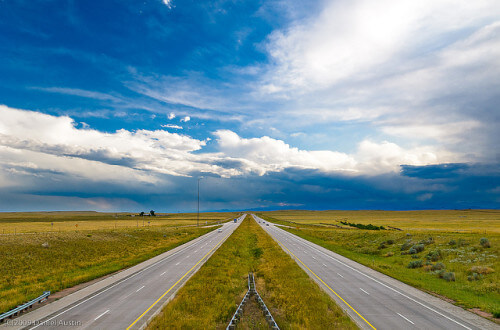Ricochet is the best place on the internet to discuss the issues of the day, either through commenting on posts or writing your own for our active and dynamic community in a fully moderated environment. In addition, the Ricochet Audio Network offers over 50 original podcasts with new episodes released every day.
 The Sky Hasn’t Fallen On Colorado’s Roads
The Sky Hasn’t Fallen On Colorado’s Roads
 When Washington State and Colorado voters legalized marijuana in 2012, many worried that the decision would lead to mayhem on the Evergreen and Centennial states’ roadways.
When Washington State and Colorado voters legalized marijuana in 2012, many worried that the decision would lead to mayhem on the Evergreen and Centennial states’ roadways.
The good thing about experimentation, however, is that you get results. As the adviser to Washington’s state-appointed board overseeing the implementation put it, the repeals offer a chance for the nation to learn about the effects of legalization:
If Washington does this right, we’ll learn something. If they do it in some sensible way and it crashes and burns—the system doesn’t work at all, we get a massive increase in use by minors, carnage on our highways—then we’ve also learned something about the cannabis-legalization experiment that the next person might learn from.
While some anecdotal reports appeared to confirm the Jerimaids, more recent data suggests that the concerns about car accidents were overblown. As of late last year, Washington State had seen an increase in the proportion of DUIs that were marijuana-related, though the number of total of DUI arrests — i.e., for alcohol, marijuana, and all other intoxicants — remained basically unchanged. The news from Colorado is similarly encouraging if, again, incomplete. Washington Post blogger Radley Balko compared the number of road fatalities since the Colorado law took effect to the same periods from previous years. His findings?
[T]he totals so far in 2014 are closer to the safest composite year since 2002 than to the average year since 2002. I should also add here that these are total fatalities. If we were to calculate these figures as a rate — say, miles driven per fatality — the drop would be starker, both for this year and since Colorado legalized medical marijuana in 2001. While the number of miles Americans drive annually has leveled off nationally since the mid-2000s, the number of total miles traveled continues to go up in Colorado. If we were to measure by rate, then, the state would be at lows unseen in decades.
Balko goes on to concede that this is merely one measure, and an indirect one at that: there could be a lot of things hiding in that data, such as increased safety features for cars and the possibility that fatalities would have been even lower had marijuana remained illegal. Regardless, it seems that looser drug laws aren’t as incompatible with steadily-increasing public safety as some critics imagined. That’s a good thing.
Photo Credit: Flickr user Daniel Hoherd.
Published in General



Even if statistically there is shown to be no increase in car accidents from marijuana legalization, as soon as there’s a big crash with attractive young fatalities where marijuana is a factor, it will become a cause celebre.
That’s not a justification for criminalization, of course.
How bad can an accident be if the driver won’t go over 30 mph?
The written portion of the test to acquire my first driver’s license included a question asking how many accidents were caused by drunk driving every year. Apparently, it wasn’t sufficient to know that drunk driving is bad. I was expected to know the justifying statistic.
Those statistics are always exaggerated due to the automatic assumption that any blood alcohol is the primary cause of an accident, or at least pivotal and not peripheral. The conclusion is preset, and evidence is sought to support it.
In reality, consumption of drugs like alcohol and marijuana is not necessarily more significant in relation to driving than moods, exhaustion, or even engrossing conversation with one’s passengers. Any of the latter can delay perception and reaction.
Now if one could walk from the ferry terminal to Safeco without getting a contact high…
Whidbey, Bainbridge, or Kingston?
The problem with “See? The sky didn’t fall” is that social changes… especially in regards to vice and family structure… takes decades to manifest the full effect of changes. Not years. Easy divorce, abortion, the Great Society… none of them changed things drastically at first. It was only two or three decades later that people went “Things suck. What happened?”. By then it’s too late. Any chance to repair the damage will also take decades, if the damage can be repaired at all.
I live in Kingston, but downtown Seattle is littered with those who care not one bit about the extant prohibition on public use of pot.
Normally I’d agree with you, but as Mollie has pointed out before, the prevalence of MJ in Colorado has long been such that some residents didn’t even realize it was illegal until everyone started making a fuss about it.
Legalization is having an impact at the margins, though. Literally — in towns on the Colorado border with states where MJ is prohibited — Nebraska, Kansas, etc. I recently read an interesting article on it (huge increases in enforcement budgets to handle the cases coming out of Colorado) and it is somewhat of a tricky problem. No easy solutions there.
The gun-bashers said the same sort of thing about right-to-carry laws.
Homeless kids are flocking to Denver just to get high which is resulting in crowded shelters for the truly needy. The whole thing is an embarrassment. Colorado license plates get you pulled over and searched if neighboring state troopers deem it necessary. It will only get worse.